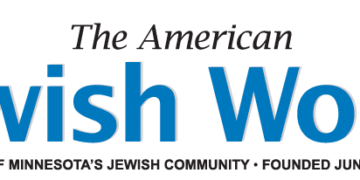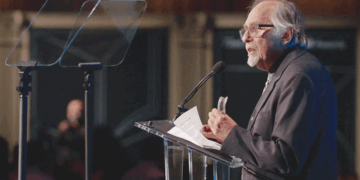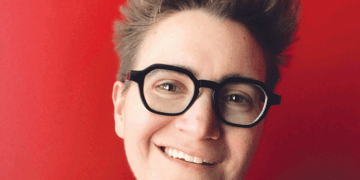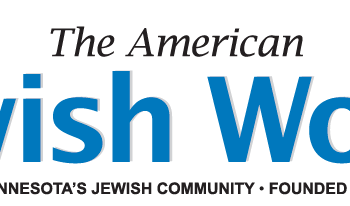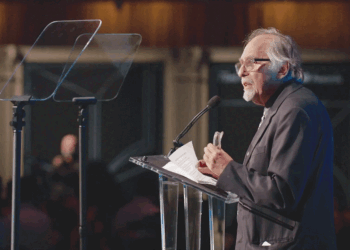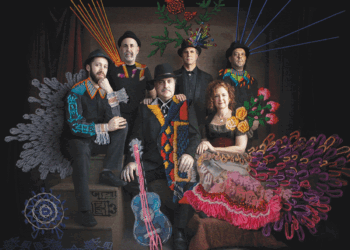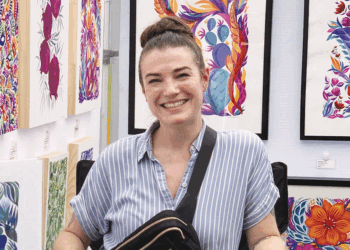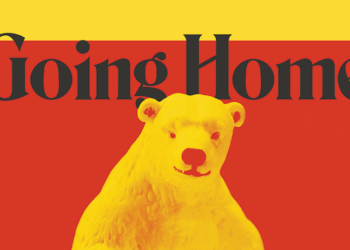By ELANA WARREN / Assistant Editor
“I am a proud Jew, and I am proud to stand with the Jewish people,” said Amanda Hillman on the steps outside the Minnesota Capitol in St. Paul on Sunday, July 11.
To coincide with a rally in Washington, D.C., local Jewish groups and community members came together at the Capitol to stand against antisemitism. The Jewish Community Relations Council of Minnesota and the Dakotas (JCRC), the Minneapolis Jewish Federation, and the St. Paul Jewish Federation organized the event with 20 co-sponsors. Sixteen speakers addressed those in attendance.
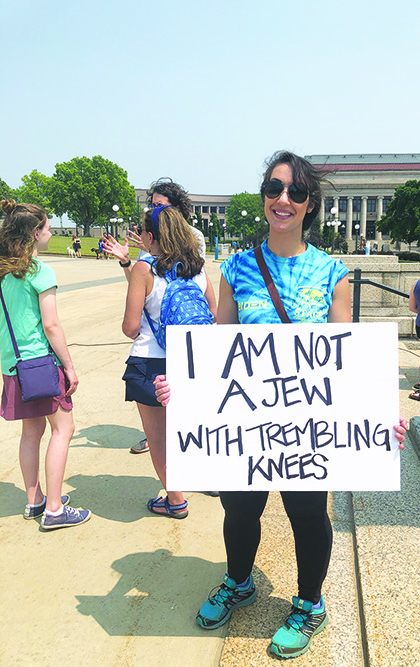
“I hope that Jewish people, whatever their beliefs …, feel renewed in the determination to combat antisemitism,” said activist Leslie Martin.
The United Against Antisemitism rally came in a time of rising antisemitism across the country and in the Midwest region. The JCRC has seen a rising number of antisemitic incidents in Minnesota reported over the last decade. Reported occurrences remained in the single digits each year from 2012 to 2014 and, with some fluctuation, have risen since. Last year saw 35 incidents of antisemitism in Minnesota, and 23 incidents have been reported in 2021, as of June 24.
Martin was a victim of a hate crime just over a year ago. “[Antisemitism is] very real to me. It’s very real to my husband, whose parents survived the Holocaust,” she said.
She quoted Italian Shoah survivor and author Primo Levi: “It happened, therefore it can happen again.” Martin added, “I do feel that we are not safe. We’re not imminently in danger, but the hatred is out there.”
The rally drew over 250 people to the State Capitol. News agencies, including Jewish Telegraphic Agency, reported around 2,000 in the crowd at the U.S. Capitol.
Legal change
Representatives of local Jewish organizations, Jewish clergy plus a Catholic priest, a Jewish teen, and DFL State Senator Ron Latz spoke over the course of the rally. Latz and Rep. Frank Hornstein championed hate crime legislation that enhanced sentences for crimes motivated by bias. Now they are working to further change Minnesota’s laws on bias-motivated crimes.
Latz said at the rally, “We recognize that crimes motivated by bias are not only crimes against the individual victim but are also attacks on the whole community that that person belongs to.”
The legislation he hopes to pass would provide training for peace officers to identify crimes motivated by bias and direct the state commissioner of human rights to seek reports of such crimes from community organizations, schools and individuals.
The crime of assault motivated by bias would expand to include bias due to a person’s “gender, gender identity, or gender expression” and against a person who associates with someone of a protected class. The legislation would also enhance sentencing of second- and third-degree property crime damages, provide funding for grants to nonprofits, and provide support services to victims of crimes motivated by bias.
Latz told the crowd he is confident the legislation will eventually pass and that it will help Jews and a range of communities against bias.
Solidarity
“We welcome and need the voices of the non-Jewish community to defend us as we have worked to defend them,” Latz said. “Yet, ultimately, we know that we must rely on ourselves more than any others to take care of ourselves. When the broader community voices lag behind in responding to antisemitism, we know that we must step up to protect ourselves as the incidents of antisemitism continue to rise and outpace the incidents of bias-motivated attacks on any other group.”
Father Erich Rutten, of St. Peter Claver Catholic Church in St. Paul, said that we are all brothers and sisters made in God’s image. He was the only non-Jewish speaker.
Toby Khabie, co-president of St. Louis Park High School’s Jewish Student Union, also spoke at the rally. He told the American Jewish World he wants to see antisemitism become a more mainstream issue: “When you look at other social justice movements, you see that the success that they’ve had comes when they can team up with other organizations and they have their allies and they have strong presences on social media and within government.”
Aklilu Dunlap, from the Multiracial Jewish Association of Minnesota, said, “No one is free when others are oppressed.”
David Goldenberg, the Anti-Defamation League’s Midwest director, declared, “We know that for centuries Jews and antisemitism have been the canary in the coal mine: When Jews are attacked, not far behind are other marginalized groups.”
Goldenberg noted that antisemitic tropes as well as other expressions of bigotry are based in falsehoods and lies. He called for people to speak out and show strength: “We must be there for one another. We have to call it out when it occurs on the right; we have to call it out when it occurs on the left. We have to call it out when it occurs within our own communities, within our own families, within our own society.”
Steve Hunegs, JCRC executive director, told the American Jewish World he hoped the rally would affirm the strength of the Jewish community, the importance of democracy and Jewish solidarity with other communities.
Amanda Hillman commented, “I’m hoping that Jews in Minnesota and Jews in the United States see and understand that we have to show up. I hope that our elected representatives see that we will show up and, again — even if it means standing alone — we’ll stand here. And if it means voting and fundraising alone, we deserve to have a voice.”
Following calls to action, Temple of Aaron Synagogue Cantor Joshua Fineblum sent one final message as he closed the gathering. He led the crowd in the song “Olam Chesed Yibane,” which he translated to “We shall build this world with kindness and righteousness and with love.”
(American Jewish World, August 2021)

